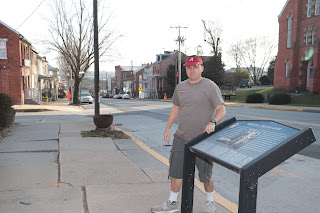
The irony of Lincoln’s armies attacking and imprisoning many of the grandchildren of our most famous Revolutionary War era Heroes and Founding Fathers (including George Washington, Thomas Jefferson, George Mason, etc) was not lost on the grandson of Francis Scott Key, author of the lyrics of our National anthem, “The Star-Spangled Banner.” His fascinating story of arrest and imprisonment follows along with my photos of famous sites related to Francis Scott Key, his parents, and many of his grandchildren, including Fort McHenry, his birthplace at Terra Rubra, his gravesite in Frederick, Maryland, his grandchildren's graves in Owing Mills, Maryland (north side of Baltimore), the Courthouse he used in Frederick Maryland, etc. - - - - - - - - - - - - - - - - - - - - FRANCIS “FRANK” KEY HOWARD FOUND THE IRONY OF BEING IMPRISONED BY YANKEES AT THE SAME LOCATION THAT HIS GRANDFATHER FRANCIS SCOTT KEY WAS DETAINED BY THE BRITISH 47 YEARS EARLIER. AFTERALL, WHIL


